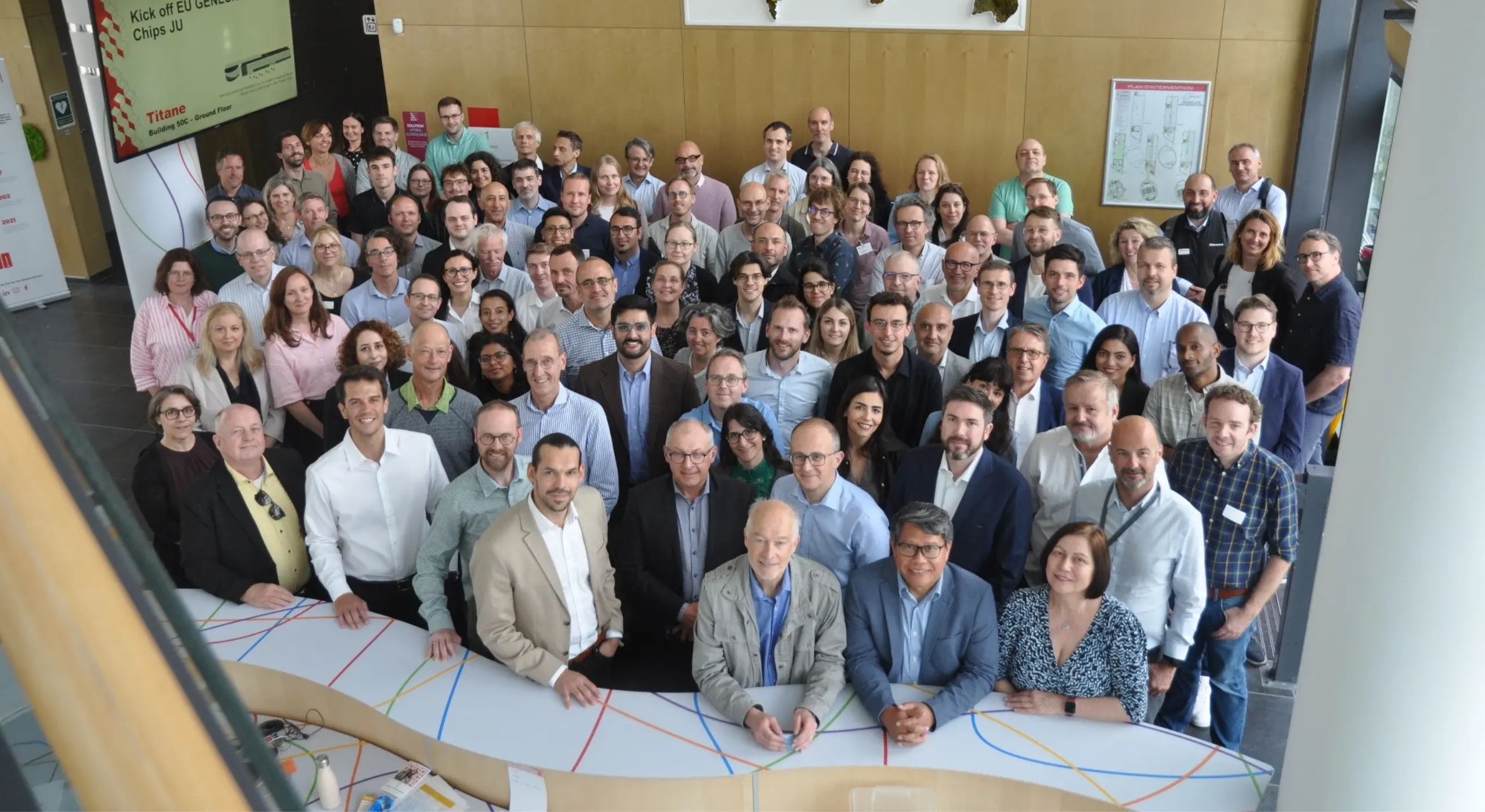Innovative solutions for the sustainable transition of Europe’s semiconductor industry
Material innovation, emission reduction, waste minimisation and critical raw material valorisation to enable low-impact semiconductor manufacturing

GENESIS - GENerate in Europe a Sustainable Industry for Semiconductors – is an ambitious research and innovation project aimed at redefining the European semiconductor industry. To meet sustainability goals, the project promotes the development of eco-friendly materials and the adoption of advanced technologies for monitoring production processes, efficient waste management, and emissions control.
GENESIS, coordinated by CEA-Leti, applied research centre based in Grenoble, brings together a transnational European consortium comprising 58 partners from across Europe. The project will run for 36 months (starting April 1st, 2025) with a total budget of approximately €55 million, co-funded by the Chips Joint Undertaking under Horizon Europe, the Swiss State Secretariat for Education, Research and Innovation (SERI), and several European national funding agencies.
Strategic Pillars and Technological Innovations
The GENESIS project foresees the development of around 45 sustainability-driven innovations across the entire semiconductor lifecycle, structured around four technological pillars for a greener semiconductor manufacturing industry:
- Pillar 1 - Monitoring and Sensors: systems for real-time emissions tracking, traceability, and production process feedback;
- Pillar 2 - New Materials: eco-friendly alternatives for the replacement of PFAS (Per- and Polyfluoroalkyl Substances) and high global warming potential (GWP) gases;
- Pillar 3 - Waste Minimization: innovative solutions for recycling solvents, gases, and slurries, reusing materials, and adopting more sustainable resources;
- Pillar 4 - Critical Raw Material Mitigation: strategies to reduce dependence on critical raw materials and reinforce resource security.
In addition, the project includes the implementation of abatement systems integrated with sensors to reduce PFAS and greenhouse gas emissions, with the ultimate goal of positioning Europe as a leader in “green” innovation, promoting supply chain practices aligned with environmental regulations.
The Italian National Cluster in GENESIS
The Italian National Cluster in GENESIS plays a strategic role in the project, bringing together some of the leading Italian stakeholders in the field, including three academic partners, Politecnico di Milano, University of Catania, and University of Rome Tor Vergata, and two industrial partners, Leonardo S.p.A. and STMicroelectronics SRL.
The coordination of the Italian National Cluster in GENESIS is entrusted to Politecnico di Milano, with Professor Andrea Matta as the research director from the Department of Mechanical Engineering (https://www.mecc.polimi.it/en), a centre of excellence in production systems, applied artificial intelligence, and manufacturing systems management.
The Role of Politecnico di Milano: Artificial Intelligence to monitor and reduce PFASin semiconductor production processes.
Within the GENESIS project, Politecnico di Milano will play a leading role in the development of advanced AI-based models for monitoring, forecasting, and optimizing PFAS emissions in semiconductor production processes, substances widely used in industrial processes but increasingly associated with environmental and health concerns.
The key outcomes achieved by Politecnico di Milano focus on enhancing the effectiveness of sensor networks in semiconductor manufacturing plants, with the aim of optimizing PFAS abatement and improving the accuracy of predictions related to PFAS levels in the gaseous environment. The expertise developed will also enable the anticipation and assessment of potential environmental and health risks associated with PFAS emissions, providing concrete support to companies in ensuring regulatory compliance and proactive risk management.
GENESIS marks a decisive step forward toward a more sustainable semiconductor industry, combining innovation with environmental protection, strengthening Europe’s competitiveness and laying the groundwork for a resilient, responsible, and long-term industrial growth.